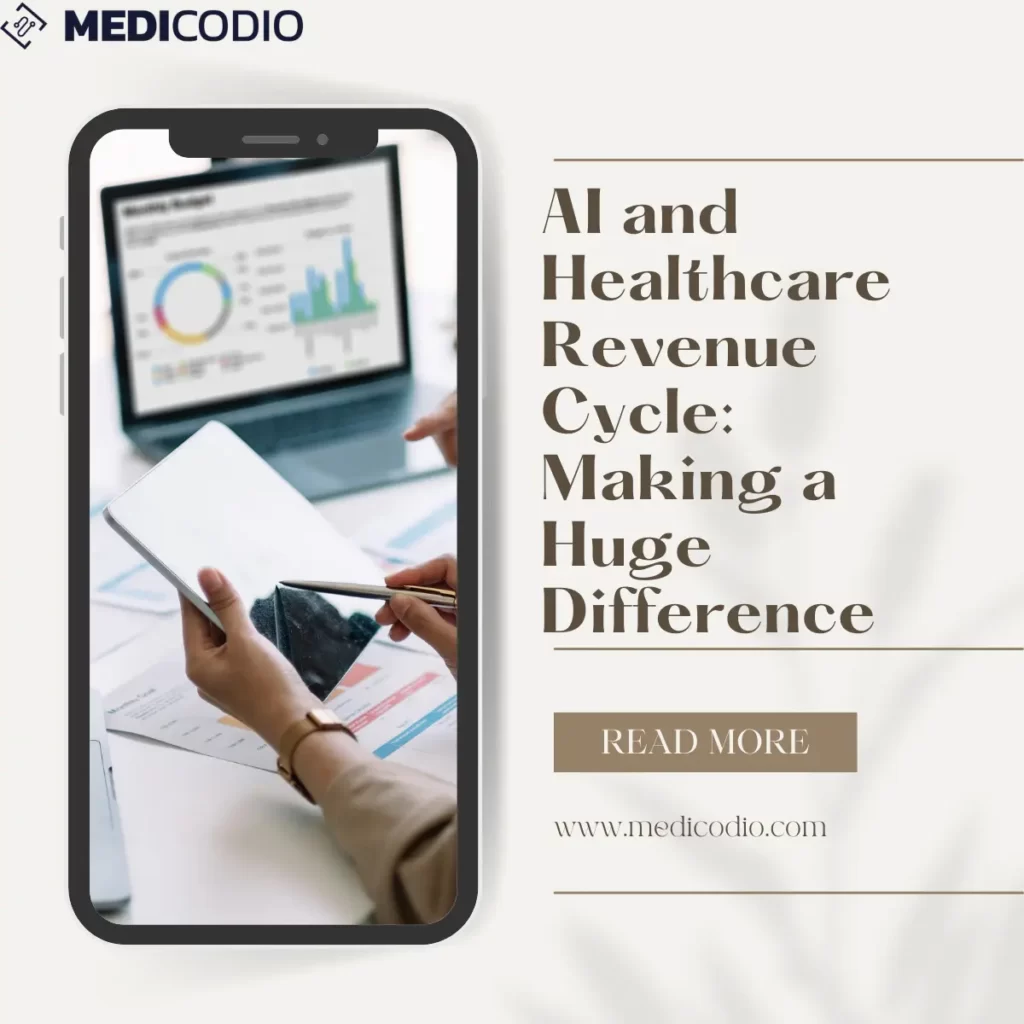The healthcare industry is witnessing a transformational shift with the integration of artificial intelligence (AI) into various aspects of patient care. However, the potential of AI extends far beyond clinical applications; it also holds the key to revolutionizing the healthcare revenue cycle. The revenue cycle encompasses the entire process of managing patient financial interactions, from appointment scheduling to claims submission and reimbursement. In this blog, we will explore the areas where AI can make the most significant impact in optimizing healthcare revenue cycle management for providers.
- Accurate Patient Eligibility Verification
One of the critical challenges in the healthcare revenue cycle is verifying patient eligibility and insurance coverage. Mistakes in this stage can lead to claim denials and delayed reimbursements. AI-powered tools can access and analyze vast amounts of data from payers, enabling real-time verification of patient eligibility. These solutions significantly reduce errors, ensuring that only valid claims are submitted, and subsequently increasing the chances of faster reimbursement.
- Efficient Claims Processing and Denial Management
The process of claims processing can be laborious and time-consuming, especially when dealing with multiple payers with different rules and requirements. AI can streamline this process by automating claims submission, ensuring that all relevant information is included, and minimizing the risk of errors that lead to claim denials. Additionally, AI-driven denial management systems can quickly identify patterns in denied claims and assist healthcare providers in resolving issues proactively.
- Enhanced Accuracy in Medical Coding
Medical coding is a crucial element of the revenue cycle, as it determines the proper billing and reimbursement for medical services rendered. Traditional coding methods, reliant on human coders, are prone to errors and inconsistencies, leading to potential revenue losses and compliance issues. However, AI-powered coding solutions can analyze medical records, documentation, and diagnostic information with remarkable precision, ensuring accurate code assignment. By reducing coding errors, healthcare providers can expect improved reimbursement rates, streamlined billing processes, and better compliance with coding regulations.
- Improved Revenue Cycle Analytics
AI-driven analytics tools can process vast amounts of revenue cycle data to generate valuable insights. By analyzing billing patterns, payer behaviors, and revenue trends, providers can identify areas of improvement and optimize their revenue cycle strategies. AI can uncover hidden patterns and correlations that human analysts may miss, leading to more informed decision-making and better financial outcomes.
- Personalized Patient Financial Experience
As healthcare moves towards a patient-centric approach, AI can help enhance the patient financial experience. AI-powered chatbots and virtual assistants can engage with patients to address billing inquiries, estimate costs, and set up personalized payment plans. This not only improves patient satisfaction but also increases the likelihood of timely payment, reducing bad debt and collection efforts.
- Fraud Detection and Revenue Leakage Prevention
Healthcare fraud and revenue leakage are significant concerns for providers. AI can play a vital role in detecting fraudulent activities and preventing revenue loss by analyzing vast amounts of data to identify irregular billing patterns, unusual claim submissions, and potential abuse. Implementing AI-based fraud detection systems can safeguard healthcare revenues and protect both providers and patients.
- Optimized Revenue Cycle Management Workflow
AI can streamline and optimize the entire revenue cycle management workflow. By automating repetitive tasks, such as coding, claim status checks, and payment posting, AI frees up staff to focus on more complex and strategic activities. The increased efficiency leads to faster revenue cycles, reduced operational costs, and improved overall financial performance.
Conclusion
The integration of AI into the healthcare revenue cycle brings unprecedented opportunities to enhance efficiency, accuracy, and revenue optimization for healthcare providers. From accurate patient eligibility verification to personalized patient financial experiences, AI-driven solutions can transform the way revenue cycle management is approached. Learn how to get started: AI Medical Coding!
As technology continues to evolve, healthcare organizations that embrace AI are likely to experience improved financial outcomes, better patient satisfaction, and a competitive advantage in the evolving healthcare landscape. To fully realize the potential benefits of AI, providers must invest in robust AI systems and prioritize staff training to ensure seamless integration into their revenue cycle processes. The future of healthcare revenue cycle management is undeniably intertwined with the power of artificial intelligence.





